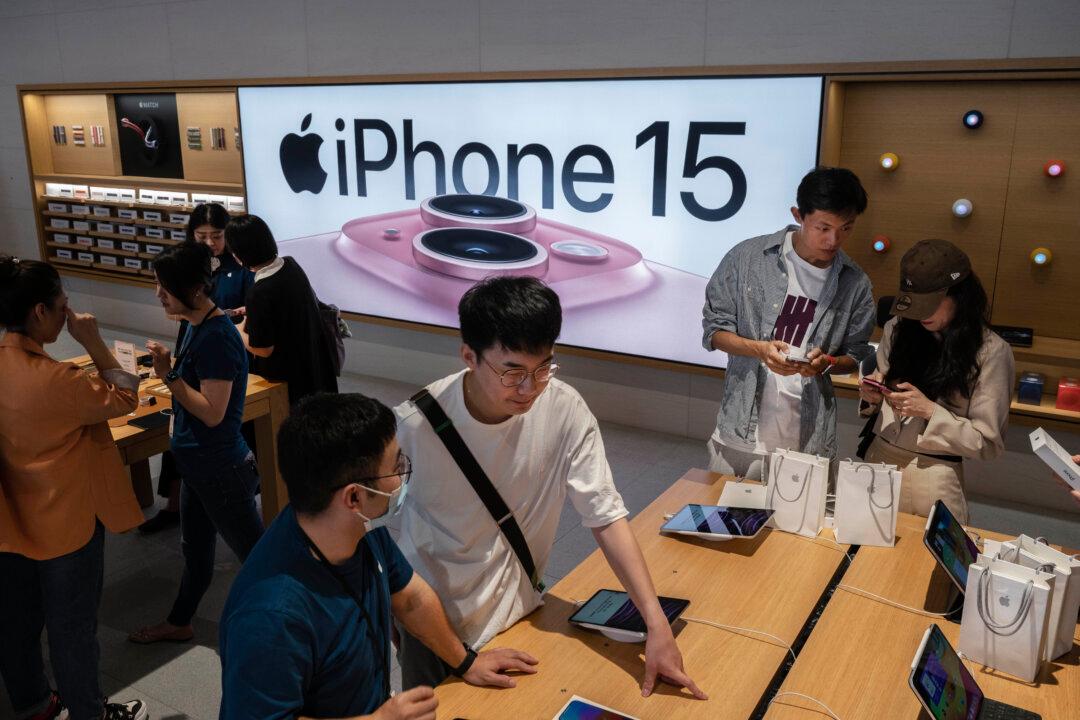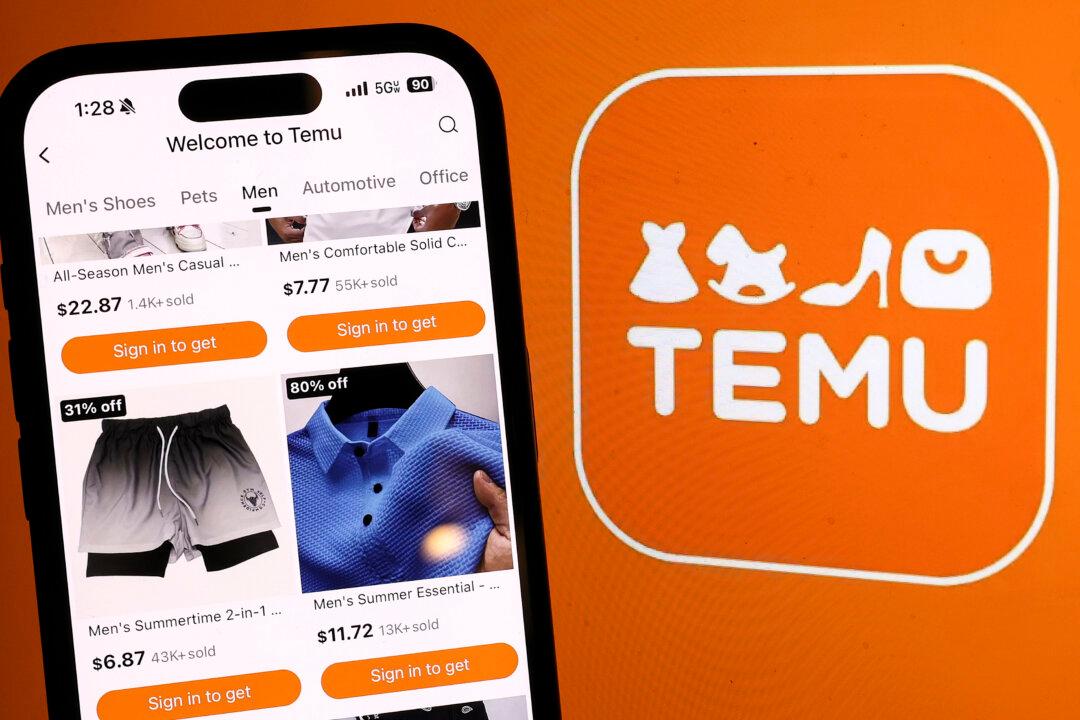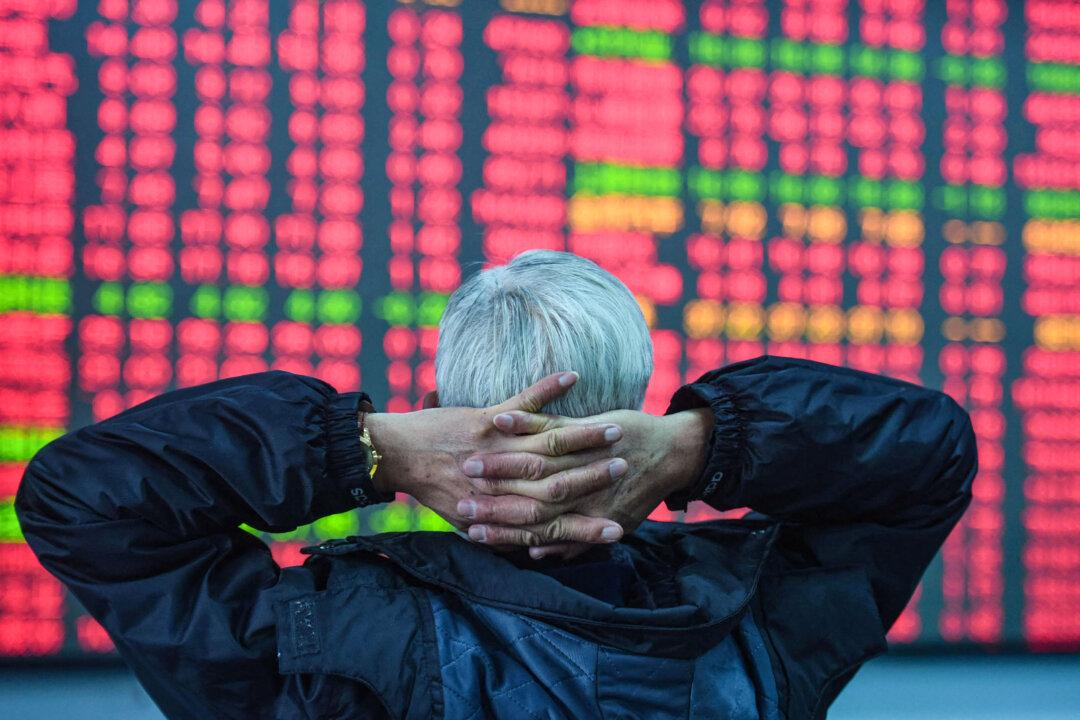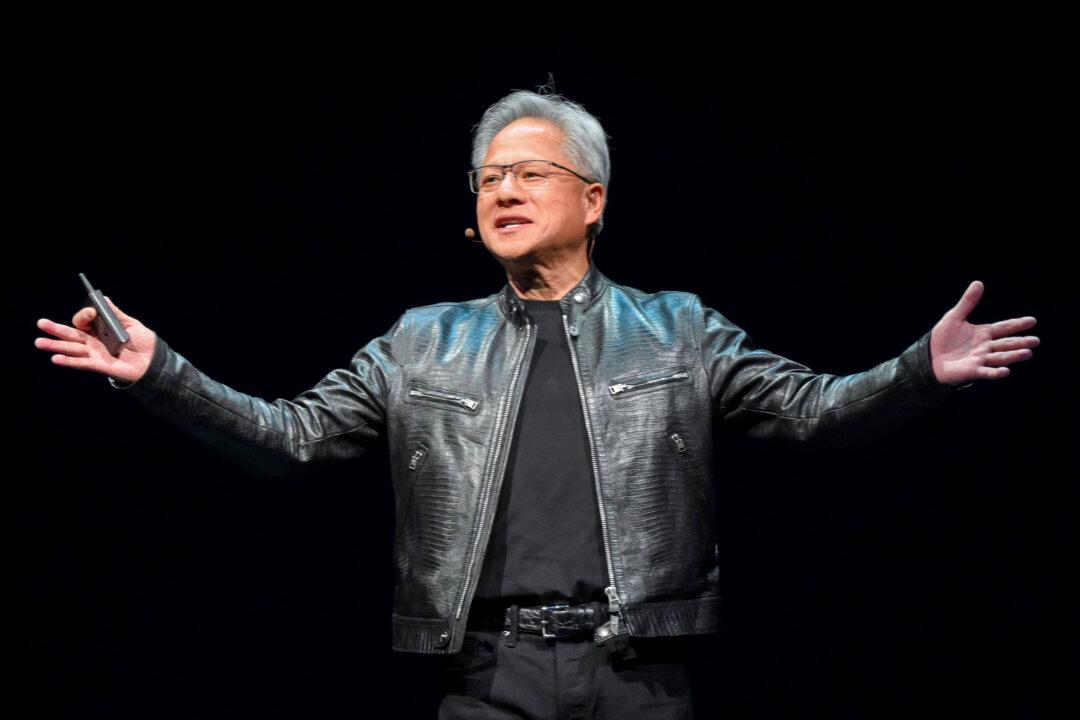As Apple’s iPhone sales in China slid 24 percent over the first six weeks of 2024, the tech giant’s stock price plummeted. In the global aftermath, Apple lost its long-time position as the most valuable company in the world.
Analysts say Apple’s status in China—which has long played a huge role in Apple’s profits, accounting for almost 20 percent of its sales over the past decade—has been undermined by Beijing’s intervention in the smartphone market, combined with the weakened Chinese economy.




